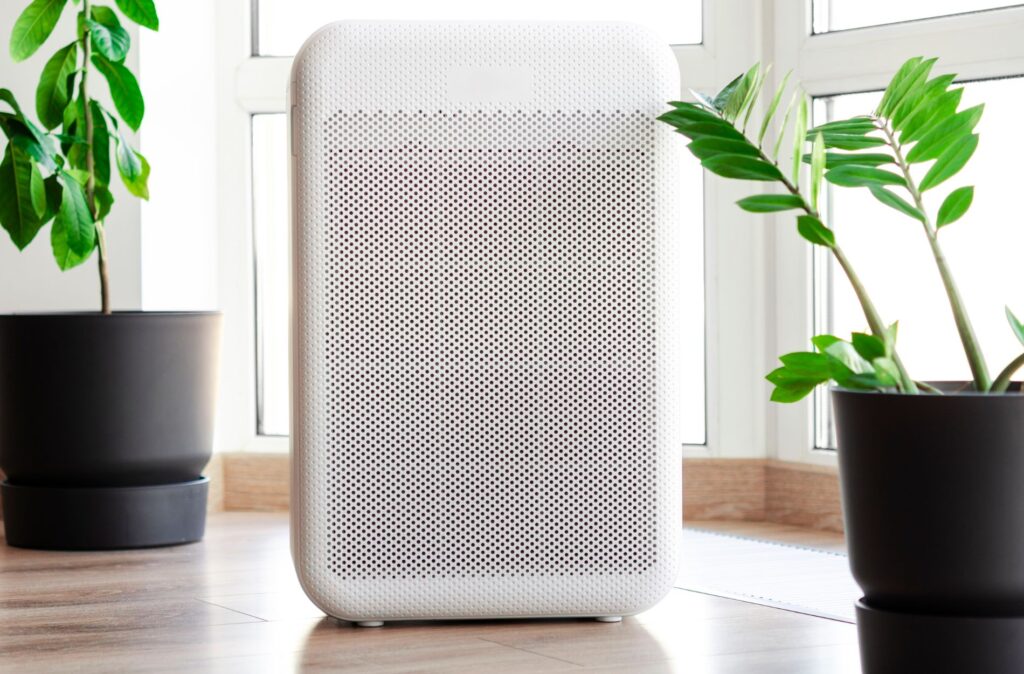Maintaining good indoor air quality is crucial to safeguarding the health and wellbeing of occupants in both residential and commercial spaces. With a majority of people spending a significant portion of their lives indoors, the quality of the air we breathe has a direct impact on our overall health and comfort. Indoor air pollutants such as dust, pollen, pet dander, mold spores, and chemical fumes can trigger allergies, asthma, or other respiratory issues, emphasizing the need to address these contaminants and ensure a clean, healthy environment. One of the most effective ways to accomplish this is by incorporating air purifiers into your space, which are designed to filter out pollutants and enhance indoor air quality. We’ll discuss the importance of indoor air quality, explore various types of air purifiers, and help you understand how partnering with our professionals at Complete Comfort Heating & Air Conditioning can assist you in choosing and maintaining the ideal air purifying solution for your home or office.
Mechanical Filters: An Effective Solution for Common Airborne Particles
One of the most common types of air purifiers is the mechanical filter, which is designed to capture airborne particles by forcing air through a screen of fibers. Some popular examples of mechanical filters include:
1. High-Efficiency Particulate Air (HEPA) Filters: Highly effective at trapping small airborne particles, HEPA filters can capture particles sized 0.3 microns or larger, including dust, pollen, and pet dander.
2. Pleated Filters: Equipped with folds to increase surface area, pleated filters can trap larger particles, such as dust and pollen, but may be less effective in capturing smaller contaminants.
Mechanical filters are ideal for capturing common allergens and irritants, but may need to be combined with other air purifying technologies to address gaseous pollutants and viruses effectively.
Activated Carbon Filters: Tackling Odors and Chemical Fumes
Activated carbon filters utilize a porous form of carbon to trap chemical fumes and odors by adsorbing them onto the filter surface. These filters are excellent at capturing volatile organic compounds (VOCs), tobacco smoke, and other gaseous pollutants that mechanical filters cannot effectively eliminate. However, activated carbon filters have limited efficiency when it comes to capturing larger particles and pathogens. Combining activated carbon filters with mechanical filters can provide comprehensive air purification for your space.
Ultraviolet Germicidal Irradiation (UVGI) and Photocatalytic Oxidation Air Purifiers: Targeting Pathogens and Microorganisms
UVGI and photocatalytic oxidation air purifiers offer advanced technologies to combat pathogens and microorganisms in the air:
1. Ultraviolet Germicidal Irradiation (UVGI): These air purifiers utilize ultraviolet (UV) light to disable or kill microorganisms such as bacteria, viruses, and mold spores. The UV light damages the DNA or RNA of these microorganisms, rendering them harmless or unable to multiply.
2. Photocatalytic Oxidation: Combining UV light with a catalyst (often titanium dioxide), photocatalytic oxidation air purifiers convert pollutants and pathogens into harmless byproducts, such as water and carbon dioxide. This process is effective against a wide range of contaminants, including bacteria, viruses, VOCs, and odors.
Although these technologies target pollutants that traditional filters cannot, they should be combined with mechanical and/or activated carbon filters for comprehensive air purification.
Choosing the Right Air Purifier with the Help of Our Professionals
To select the best air purifier for your needs, consider the following factors:
1. Pollutant Types: Identify the primary sources of indoor air pollution in your space. Is it pet dander, dust, chemical fumes, or bacteria? This information will help our professionals guide you toward the most effective air purifier options.
2. Room Size: Consider the size of the room or space where the air purifier will be used. Some air purifiers are more suitable for smaller rooms, while others can accommodate larger spaces.
3. Noise Level: If you’re sensitive to noise, or the air purifier will be used in a bedroom or office, choose a model that operates quietly.
4. Maintenance Requirements: Understand the regular maintenance needed, such as filter replacement, and factor this into your decision.
5. Product Features: Evaluate additional features like air quality indicators, filter change notifications, programmable settings, or smart technology compatibility.
By working with our professionals, you can find the most appropriate air purifying solution that aligns with your specific needs, preferences, and budget.
Conclusion: Let Complete Comfort Heating & Air Conditioning Help You Improve Your Indoor Air Quality
Investing in an air purifier can significantly enhance the indoor air quality in your residential or commercial space. By partnering with our knowledgeable professionals at Complete Comfort Heating & Air Conditioning, you can navigate the many air purifier options with confidence and choose the right solution to promote a healthier, cleaner, and more comfortable indoor environment.
Don’t let poor indoor air quality affect your health and wellbeing. Contact our HVAC contractor in Springville, UT today, and let us help you find the perfect air purifier solution for your space.




